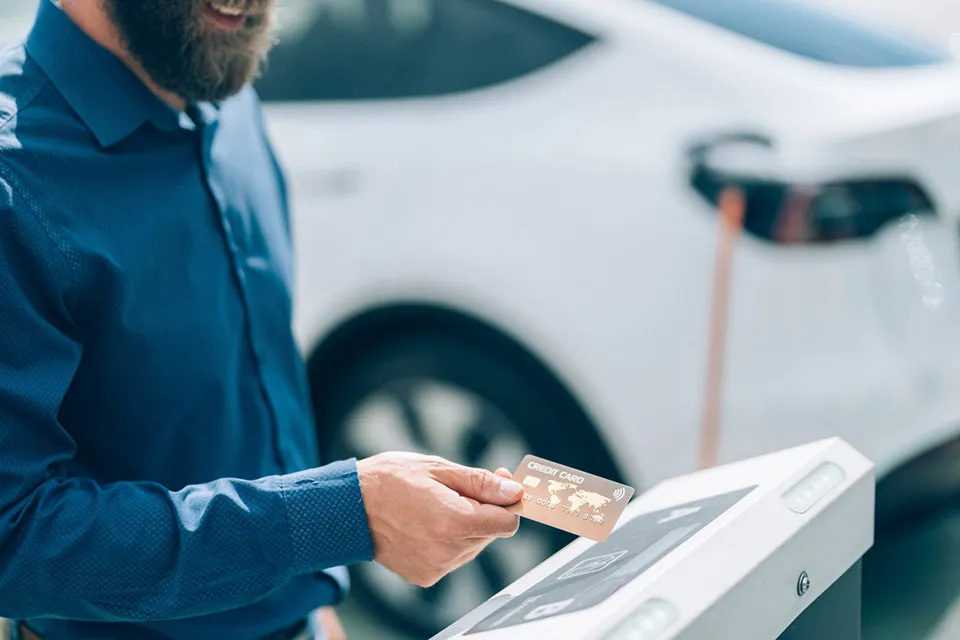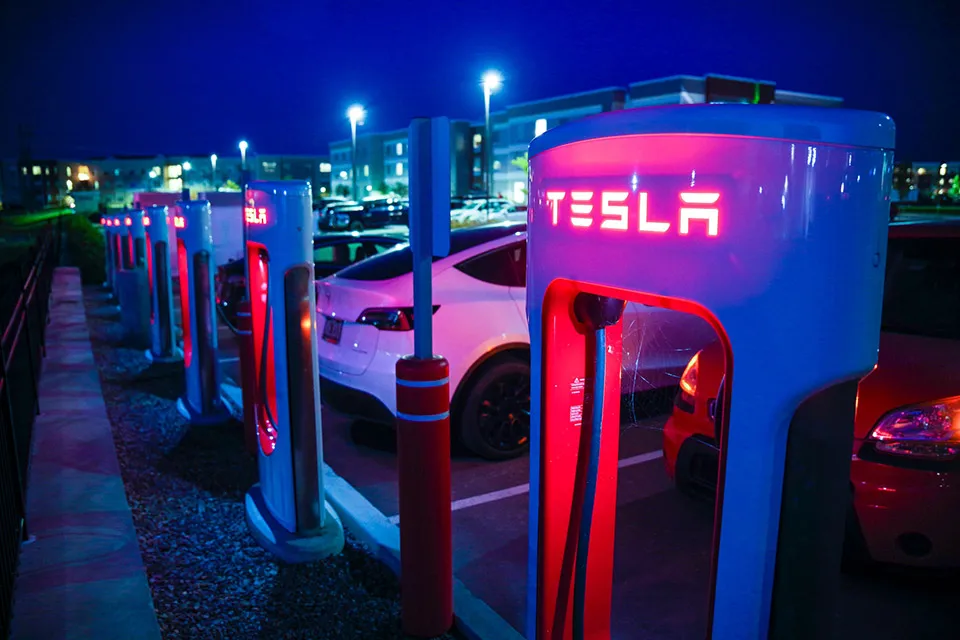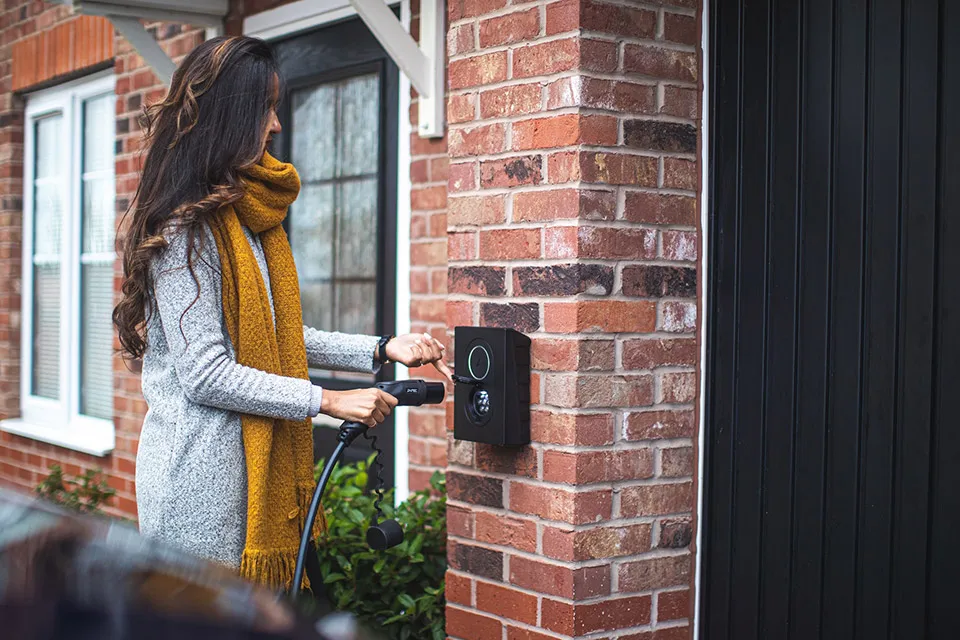How Much Electricity Does an Electric Car Use?

An intelligent vehicle owner is always thinking about their budget, and for EV drivers, that means thinking about charging costs. One of the significant advantages of driving an EV is avoiding those exorbitant prices at the pump. That being said, charging your EV battery isn't free. How much you'll be paying to charge depends on several factors; to get a rough estimate of your cost, you'll first want to estimate your cost per kilowatt hour.
Estimating Your Average Cost Per kWh
One factor in deciding your electric car charging costs is determining how much you usually pay for electricity. So first, get out a recent electricity bill to reference and calculate how much you pay per kilowatt hour (a kilowatt hour is equivalent to the consumption of 1,000 watts for one hour.) Then, to get your price per kWh, you'll want to divide the total amount you paid by the total number of kilowatt-hours you racked up. According to the U.S. Energy Information Administration, this is usually around $0.15 per kWh. Knowing this figure will help you estimate your EV miles per kWh, which indicates how many miles your electric vehicle can travel on one kilowatt-hour of electricity.
Depending on your electric vehicle, you will get an average of 2-5 miles per kWh. A dealership or your vehicle's manufacturer can usually find the exact number. Once you have the correct amount, spend a month recording your total mileage. After you have both numbers, you can use this formula to calculate your cost per month.
EV Charge Cost Formula: Monthly Mileage · Average Mileage Per kWh x Cost Per kWh = Monthly Charge Costs
Let's use this formula to work out an example charge cost. Let's say you get 4 miles for every kilowatt hour, and you drive 1,200 miles in a month. You would divide 1,200 by 4 to get 300 kWh. You would then multiply this number by your cost per kWh, which we'll say is $0.15. That would mean that your monthly cost to charge an electric car would be $49.
How Much to Charge An Electric Car At a Charging Station

If you plan to charge your vehicles away from home, you'll need to seek out an EV charging station. These stations feature level 2 and level 3 chargers, which can drastically reduce the time you'll spend filling up your battery. A level 1 at-home charger can take as long as 40 hours to fill an empty battery up; a level 2 can do it overnight, and a level 3 can do it in as little as 30 minutes. Convenience comes at a cost, and these higher-level chargers may cost you more than charging at home.
The price for using car charging stations varies depending on the station's equipment and the demand for charging. Prices can surge during high-use hours, and you may pay more per kilowatt if other drivers are lining up to charge. If you're lucky, you can also find places that offer free charging, like car dealerships. Certain grocery stores will also provide EV charging to encourage more customers to come in. For those who tack on a charger use price, you can expect to pay between $0.25 to $0.70 per kWh. This price is higher for level 3 chargers (which tend to drift closer to the $0.70 per kWh mark), while level 2 can be as low as $0.15 per kWh.
Cost To Install EV Charger At Home

If you want to install an EV charger within your home, you will first need to decide what level of charger you want to have.
- Level 1: With 120-volt single-phase AC capable of producing up to 16 amps, a level 1 charger can deliver a 1.9-kilowatt rate per hour. These are the standard EV charging infrastructure and work with most household wall outlets. Installing level 1 chargers will cost, on average, between $1,000 and $2,500. It's essential to factor in their efficiency in terms of EV miles per kWh.
- Level 2: While level 2 chargers require 240 volts, they offer a much faster-charging speed at a rate of 19.2 kilowatts. You will need specialized charging equipment and a dedicated electrical circuit capable of producing 20 to 100 amps. Installing level 2 chargers will cost, on average, between $1,500 and $3,000.
- Level 3: The most powerful charging option, level 3 chargers can get most batteries up to at least 80% within 30 minutes. Unfortunately, these chargers are not compatible with all vehicles and require a 480-volt unit to function correctly. Installing level 3 chargers will be incredibly cost-prohibitive, with the average cost of parts and labor landing between $20,000 and $100,000.
Different charging brands also have their installation costs. Teslas, for example, come with a standard level 1 charger for free that is compatible with almost any 120-volt outlet no matter where you go. However, if you want access to a level 2 charger for your vehicle, you'll need to pay around $500. You may also need to pay for labor, and depending on the precise equipment you choose, your overall cost will be approximately $1,100.
What Should I Do Before Purchasing an Electric Vehicle?
Besides figuring out how you'll charge your EV, you also want to get as much information about its past as possible. Finding out a car's accident history, where it was manufactured, its current mileage, and whether it's been recently repaired are all essential to finding a viable long-term form of transportation. The best way to get these details is through a vehicle history report.
Getting a vehicle history report can be very helpful as well, providing you with information like:
Title Records
- Junk/Salvage Records
- Insurer "Total Loss" Records
- Pricing
- Sales History
- Problem Checks
- Mileage
Auto Specs
- Location History
- NHTSA Crash Test Ratings
- NHTSA Recalls
- Awards and Accolades
- Manufacturer Information
- And More!
Getting these details is invaluable when shopping in the used car market; with this information, you can cross-check what a seller provides and make sure they aren't trying to scam you.
FREE Vehicle Search
- Accidents
- Problem Checks
- Title Records
- Recalls
- Values
- Specs
-
InfoPay, Inc. (dba GoodCar) is an Approved NMVTIS Data Provider
-
-























